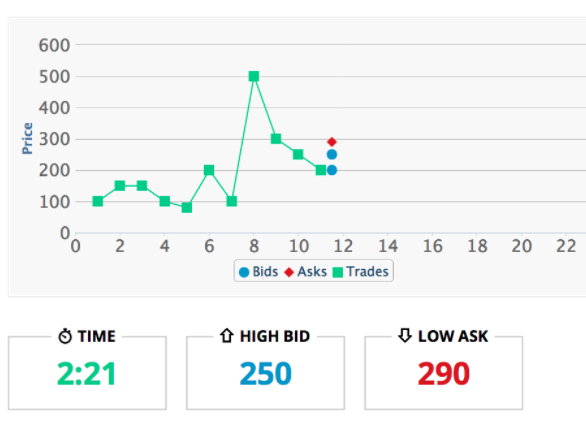|
5 Comments
Here.
This web site is a resource for instructors of economics who would like to use non-computerized economic experiments (games) in their classrooms. The bulk of the website consists of an extensively annotated and hyperlinked compilation of more than 170 classroom games, most of which can be played within one class period. The purpose of the games is to help teach fundamental micro and macroeconomic concepts. The web site is organized around two tables that classify the games according to subject matter, objectives, class size, game variations, etc. A bibliographic source and/or contact reference is provided for each game. Whenever possible, each game is hyperlinked to (i) similar or related games, (ii) the author's email address, and (iii) a website where the full game description can be accessed (if available). A separate link to a complete games bibliography follows the tables. Table 1 classifies experiments for the Principles of Microeconomics course. The table is divided into three sections covering (i) the basic elements of economic analysis (supply and demand, perfect and imperfect markets, etc.), (ii) applying the basics (international trade and currency markets), and (iii) beyond the basics (market imperfections and government intervention). Table 2 classifies experiments for the Principles of Macroeconomics course. While there is generally a dearth of games currently available for this course, several recent games have begun to flesh out the scope of the offerings. Here.
Many students respond well to being involved in a game and the experience can fix a concept vividly in their minds. We have guides and, in some cases, printable materials to help you introduce games to your classes. Here.
Founded in 2012 by George Mason University economics professors Tyler Cowen and Alex Tabarrok, Marginal Revolution University is building the world’s largest online library of free economics education videos -- currently weighing in at more than 800 videos. Here.
When students learn biology, physics or even psychology, they often do experiments. They explore and discover first hand on the inner workings of things. Why hasn’t this been the case for studying economics, management or the social sciences in general? To us, what was missing was a new kind of laboratory because the social world cannot be explored with the old equipment. This lab needed to connect thousands of students simultaneously. This lab needed to handle repeated interactions timely and efficiently. This lab needed to help the students relate their experience to theory with carefully designed user interfaces and narratives. This lab needed to provide contents including teaching plans, data annotations and student notes, to help make adoption easy. Led by founders from Caltech, we are set out to build this lab. Here.
Experiments bring theory to life for your students by putting them into the action and then letting them see the outcome of their interactions. |
|
